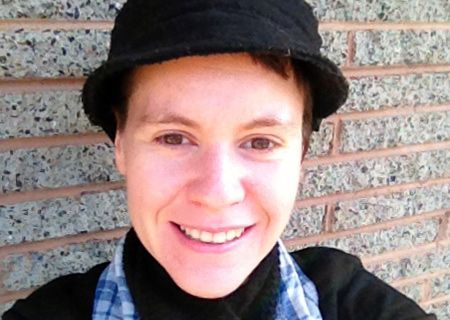Marie Matteson chats about Virginia Woolf, gothic fiction in a contemporary setting, and the joy to be found in reading

Why do you work in books?
I feel I’ve been surrounded by books my whole life and it seems entirely natural to me that I would end up working among them. There’s a photo I have of the Christmas when I was five and I’m sitting on top of a copy of Edward Gibbon’s History of the Decline and Fall of the Roman Empire that I had just received from my dad. What chance did I have?
What’s the best experience you’ve had in a bookshop?
For a number of years I was a children’s book specialist and, as such, I got to do a lot of events with kids. The all-time most awe-inspiring moment for me was when I read The Gruffalo to 100 children waiting to meet the Gruffalo himself. I was sitting on a footstool with no mike and I was more than a bit nervous, but the kids were amazing. The ‘reading’ quickly turned into a group recitation. Everyone in the crowd knew all the words and repeated them with relish, especially the line about owl ice-cream.
What’s the best book you’ve read lately and why?
After a break from fiction for a few months I’ve dived back in recently with the gothic novel The Girl on the Stairs by Louise Welsh. It was all-consuming and ominous, as good gothic fiction should be, and yet set in modern Berlin. I think it takes great skill to marry the heightened romanticism of this genre with an everyday, recognisable city, and Welsh does it with an easy grace. Reading her novel in a crowd, I felt a creeping isolation and dread.
What’s your favourite book?
The Edge by Dick Francis was my first favourite novel. It was the first book I wanted to reread as soon as I finished. It’s a thriller set on a trans-Canadian train journey, and Francis’s attention to detail draws me in each time. He romanticises being a waiter on a train by making him an undercover investigator but then also explains how to set a table on a moving carriage.
Name a book that has changed the way you think, in ways small or large.
Virginia Woolf’s A Room of One’s Own articulates so clearly and cleverly the constraints that have bound the participation of women in the literary landscape, just as they have bound women in their participation with the world. As she writes of walking the grounds of Oxbridge and being kept off the grass and out of the colleges, she elegantly lays out the ways in which women are kept from literary authority.


